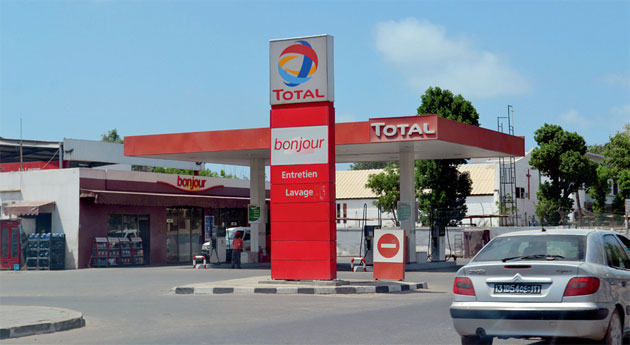Djibouti making strides
04:38PM Mon 29 Apr, 2013

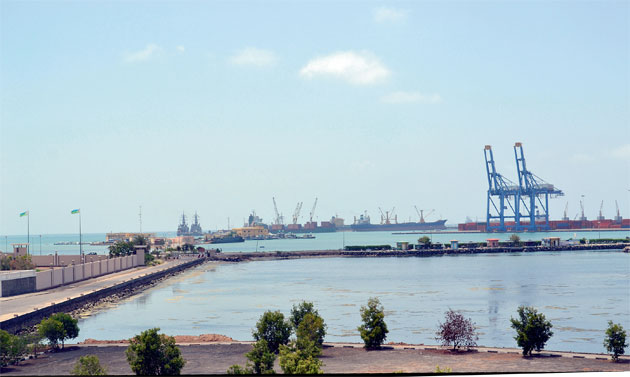 Muaz Shabandri (Reporting from Djibouti) / 29 April 2013
Djibouti: Economic activity in East Africa is booming and major infrastructure projects are expanding trade relations between countries in the Middle East and East African nations like Ethiopia and Djibouti.
Positioned along one of the world’s busiest shipping routes, the small East African nation of Djibouti has gained significance as a gateway to the continent.
The country provides access to Ethiopia, Africa’s second most-populated country. Recent oil discoveries in Ethiopia, coupled with infrastructure projects, have pushed investments in Djibouti’s logistics sector with major expansions planned for its airport. A new cargo village is being developed with the hope to forge a sea-air links between major African countries and the Middle East.
Muaz Shabandri (Reporting from Djibouti) / 29 April 2013
Djibouti: Economic activity in East Africa is booming and major infrastructure projects are expanding trade relations between countries in the Middle East and East African nations like Ethiopia and Djibouti.
Positioned along one of the world’s busiest shipping routes, the small East African nation of Djibouti has gained significance as a gateway to the continent.
The country provides access to Ethiopia, Africa’s second most-populated country. Recent oil discoveries in Ethiopia, coupled with infrastructure projects, have pushed investments in Djibouti’s logistics sector with major expansions planned for its airport. A new cargo village is being developed with the hope to forge a sea-air links between major African countries and the Middle East.
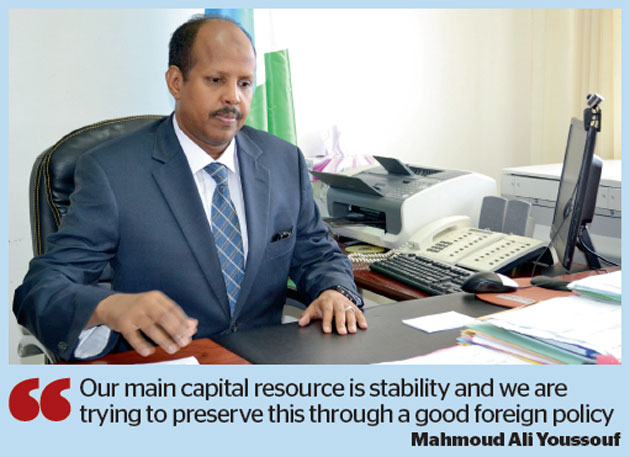 That’s not it; the country hopes to build three new ports to meet the projected demand for handling up to 10 million containers annually by 2015. UAE-based DP World has been at the forefront of port operations in Djibouti and the opening of the Doraleh Container Terminal in 2008 injected a much needed cash flow needed to support the economy. The port already operates at twice its capacity, serving 800,000 twenty-foot equivalent units, or TEU, annually and growth projections have marked the need for development of major infrastructure projects.
In an interview with Khaleej Times, Mahmoud Ali Youssouf, Djibouti Minister for Foreign Affairs and International Cooperation, shed light on investment potential in Djibouti and the country’s trade relations with the UAE.
Excerpts from the interview:
Major investment in Djibouti was first started by UAE companies and investment funds are still a major catalyst for the country’s growth. When was formal trade between the two countries institutionalised?
When it comes to investments [in Djibouti], the UAE has been a pioneer. It gave Djibouti a very important position as an economic and logistics hub for the East African region. We signed our first partnership agreement with the UAE through a deal with DP World in 2003. Since the partnership with DP World, the port was taken over and managed by the company. DP World also brought onboard investment companies like Istithmar World and Nakheel. Nakheel developed the first five-star hotel and also constructed a residential villa complex in Djibouti. DP World also started work on the new Doraleh Container Terminal while developing the old port through Dubai Investments. A tank farm was also built by Horizon Investments. We also have private partners from the UAE who are investing in Djibouti. They have taken lands to build malls and develop resorts, which is a good sign of strengthening public-private partnership between Djibouti and the UAE.
In the current phase of development, what are the key African countries that can benefit from Djibouti’s position as the logistical hub for East Africa?
Djibouti is considered a gateway to Ethiopia, which is a very big market. We are even targeting other markets behind Ethiopia that include Southern Sudan, Somalia, Rwanda and parts of Uganda. Our ambition is really to open up our markets to those countries that are landlocked. Most of the traffic coming to the Djibouti port goes directly to Ethiopia. This is an imperative for our economy to diversify our partnerships and also to get trans-shipment activities and to open up to commercial markets.
Are there any plans to increase the number of flights between Dubai and Djibouti, keeping in view the increasing economic activity in the East African region?
Currently, there are three direct flights between Dubai and Djibouti operated by flydubai. We are in negotiations with Emirates to operate a cargo flight [from Dubai to Djibouti]. Plans are also underway to develop a cargo village in the existing airport, and the idea is to develop a sea-air transport link. Some of the West African countries feel the cargo they bring from the UAE takes a lot of time to reach through the Suez Canal. The idea is to have a cargo village in Djibouti and import via sea and fly the imports to major capital cities. Combined transport is an area we intend to develop over the next few years.
Major economic activity in Djibouti is supported by the development of ports. Are there any plans to develop and improve the port facilities?
In Djibouti, we have four operational ports and plans are underway to build three more. Two of these new ports will be built in the northern part of the country and one of them will be funded through a Chinese investment. The Tadjourah port serving northern Ethiopia is being developed by a Kuwaiti fund and the Arab Fund for Economic and Social Development. The existing DP World Doraleh Container Terminal has been built to handle 400,000 TEU per year, yet it is already handling 800,000 TEU. With our target of 10 million containers over the next five years, the extension of our existing port will start by early 2014, Similarly, the oil terminal will also have an extension programme.
That’s not it; the country hopes to build three new ports to meet the projected demand for handling up to 10 million containers annually by 2015. UAE-based DP World has been at the forefront of port operations in Djibouti and the opening of the Doraleh Container Terminal in 2008 injected a much needed cash flow needed to support the economy. The port already operates at twice its capacity, serving 800,000 twenty-foot equivalent units, or TEU, annually and growth projections have marked the need for development of major infrastructure projects.
In an interview with Khaleej Times, Mahmoud Ali Youssouf, Djibouti Minister for Foreign Affairs and International Cooperation, shed light on investment potential in Djibouti and the country’s trade relations with the UAE.
Excerpts from the interview:
Major investment in Djibouti was first started by UAE companies and investment funds are still a major catalyst for the country’s growth. When was formal trade between the two countries institutionalised?
When it comes to investments [in Djibouti], the UAE has been a pioneer. It gave Djibouti a very important position as an economic and logistics hub for the East African region. We signed our first partnership agreement with the UAE through a deal with DP World in 2003. Since the partnership with DP World, the port was taken over and managed by the company. DP World also brought onboard investment companies like Istithmar World and Nakheel. Nakheel developed the first five-star hotel and also constructed a residential villa complex in Djibouti. DP World also started work on the new Doraleh Container Terminal while developing the old port through Dubai Investments. A tank farm was also built by Horizon Investments. We also have private partners from the UAE who are investing in Djibouti. They have taken lands to build malls and develop resorts, which is a good sign of strengthening public-private partnership between Djibouti and the UAE.
In the current phase of development, what are the key African countries that can benefit from Djibouti’s position as the logistical hub for East Africa?
Djibouti is considered a gateway to Ethiopia, which is a very big market. We are even targeting other markets behind Ethiopia that include Southern Sudan, Somalia, Rwanda and parts of Uganda. Our ambition is really to open up our markets to those countries that are landlocked. Most of the traffic coming to the Djibouti port goes directly to Ethiopia. This is an imperative for our economy to diversify our partnerships and also to get trans-shipment activities and to open up to commercial markets.
Are there any plans to increase the number of flights between Dubai and Djibouti, keeping in view the increasing economic activity in the East African region?
Currently, there are three direct flights between Dubai and Djibouti operated by flydubai. We are in negotiations with Emirates to operate a cargo flight [from Dubai to Djibouti]. Plans are also underway to develop a cargo village in the existing airport, and the idea is to develop a sea-air transport link. Some of the West African countries feel the cargo they bring from the UAE takes a lot of time to reach through the Suez Canal. The idea is to have a cargo village in Djibouti and import via sea and fly the imports to major capital cities. Combined transport is an area we intend to develop over the next few years.
Major economic activity in Djibouti is supported by the development of ports. Are there any plans to develop and improve the port facilities?
In Djibouti, we have four operational ports and plans are underway to build three more. Two of these new ports will be built in the northern part of the country and one of them will be funded through a Chinese investment. The Tadjourah port serving northern Ethiopia is being developed by a Kuwaiti fund and the Arab Fund for Economic and Social Development. The existing DP World Doraleh Container Terminal has been built to handle 400,000 TEU per year, yet it is already handling 800,000 TEU. With our target of 10 million containers over the next five years, the extension of our existing port will start by early 2014, Similarly, the oil terminal will also have an extension programme.
Djibouti is heavily dependent on imports. What are your major imports?
We import 90 per cent of our consumed products and our top three imports are food, fuel and building materials [cement, steel and ceramics]. Djibouti’s economy is mainly based on services but we don’t believe that building the foundation of a good economy is not viable on services only. We need to be self-sufficient in terms of food crops. We need to also develop small-scale industries; Djibouti has also created a regional centre for livestock export. The fishing industry’s potential also needs to be developed and it has not been fully exploited at a large scale. There is a project in the northern part of the country looking at the development of fish farms in partnership with Malaysian and Indonesian companies. Djibouti faces an acute shortage of energy and water resources, and industrial costs remain high. Are there plans to diversify energy production and develop renewable energy? Power is quite costly now because Djibouti imports its fuel. In order to reduce this cost, we have to diversify the sources of power generation. Renewable energy is one of the challenges that we would like to overcome in the next couple of years. When we finish building the second power connection line and develop geothermal production units and support wind energy turbines, we are optimistic that the cost of energy will be reduced by half. We also have water shortage problems and we are thinking of desalinating sea water. What are the key renewable energy sectors being planned for supporting economic and social development in Djibouti? Feasibility studies have showed us the possibility of developing geothermal energy. We already have a hydropower interconnection with Ethiopia financed by the African Development Bank and we are building a new line to improve this connection. At the same time, we are looking at ways to develop wind energy. Qatar is at the forefront of finalising these discussions with Djibouti. Efforts to develop solar energy are also underway and a pilot study has been financed by Japan. Some private companies in Qatar have also showed an interest in solar energy development.How does Djibouti address its relations with countries like Somalia and Eritrea?
Our main capital resource is stability and we are trying hard to preserve that stability through a good foreign policy. However, it is difficult to feel safe when you have troubles in neighbouring countries. Djibouti is not only protecting its own borders, but also working on stabilising neighbouring countries. Somalia’s security situation is improving and there is no major problem between Somaliland and Djibouti, but the southern part of Somalia needs to be stabilised.What are the financial projections and investment trends over the next five years?
The overall investment package that will be invested [in Djibouti] over the next five years is close to $8 billion. Apart from foreign direct investment, we are supported by soft loans and concessional loans that we get from Arab funds. Loans from Exim banks of China, Turkey and Iran are also a part of this value. As much as there is a need to diversify partnership with other countries, we feel the need to build our own investments in strategic sectors like energy, water and logistics.What is the value of foreign aid received by Djibouti?
Foreign aid providers include China and Japan and their grants have provided between $20 million to $30 million each. Gulf countries also provide close to $60 million as grant aid and soft loans. China has also stepped up its assistance through its China Exim bank and we expect bigger loans. We have signed a financial convention with Exim bank worth $70 million to develop the Ghubaith port. Maritime security is a concern for shipping companies and oil-producing countries in the Middle East. How has Djibouti supported in the fight against piracy? Djibouti has always been a key player in the collective security of the international community. The main maritime routes pass through Bab El Mendab. Even after the 9/11 terrorist attacks [in the US], Djibouti has been volunteering to host international coalition to fight terrorism. As piracy increased, we also volunteered to host European operations. We are trying to provide our services to help international naval forces to fight piracy. The country has also strengthened its coast guard and developed radar systems to assess risks in territorial waters. muaz@khaleejtimes.com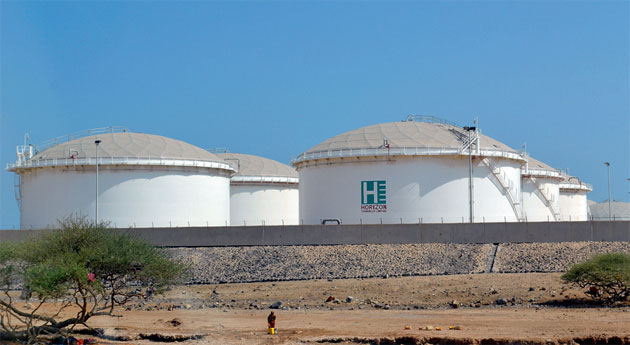
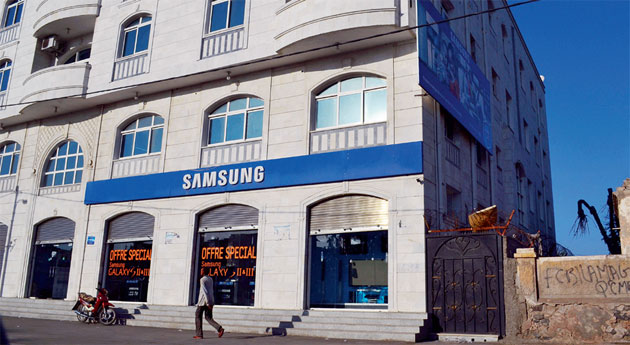 - Khaleejtimes.com
- Khaleejtimes.com




